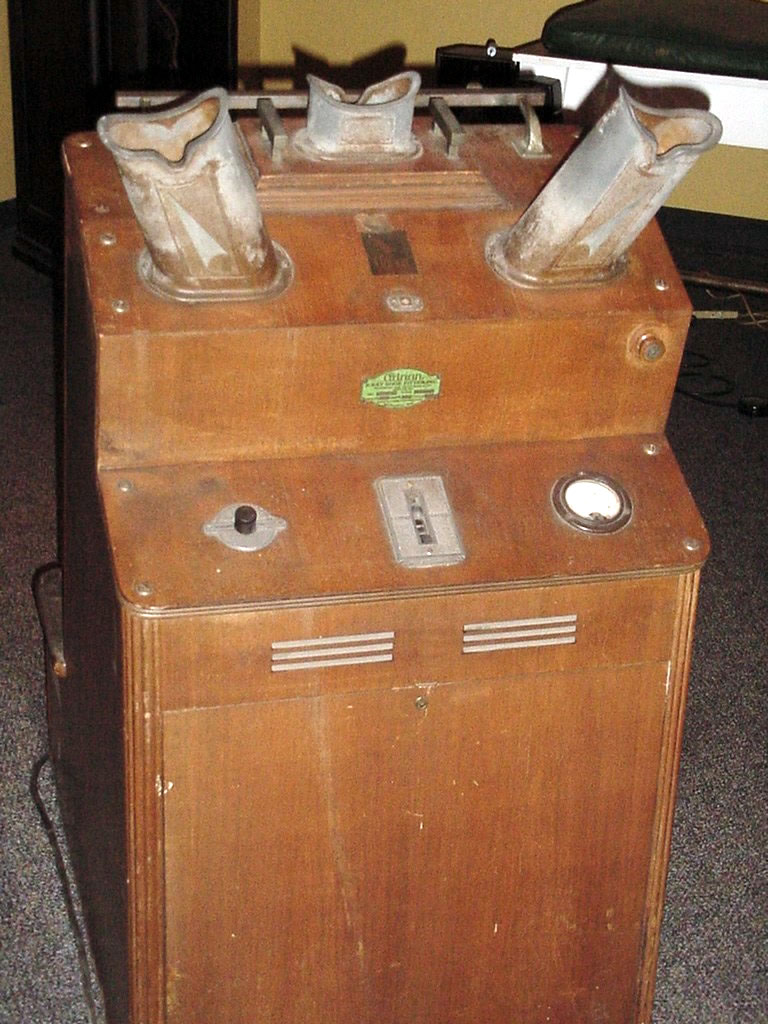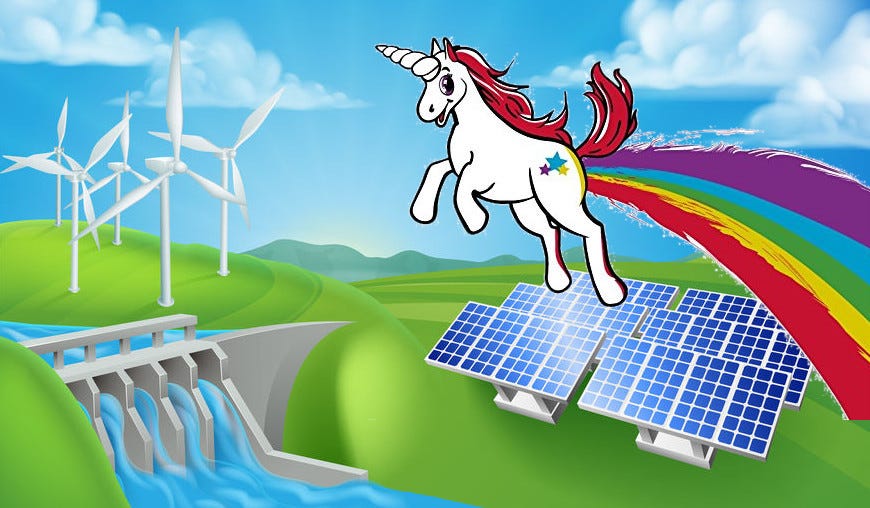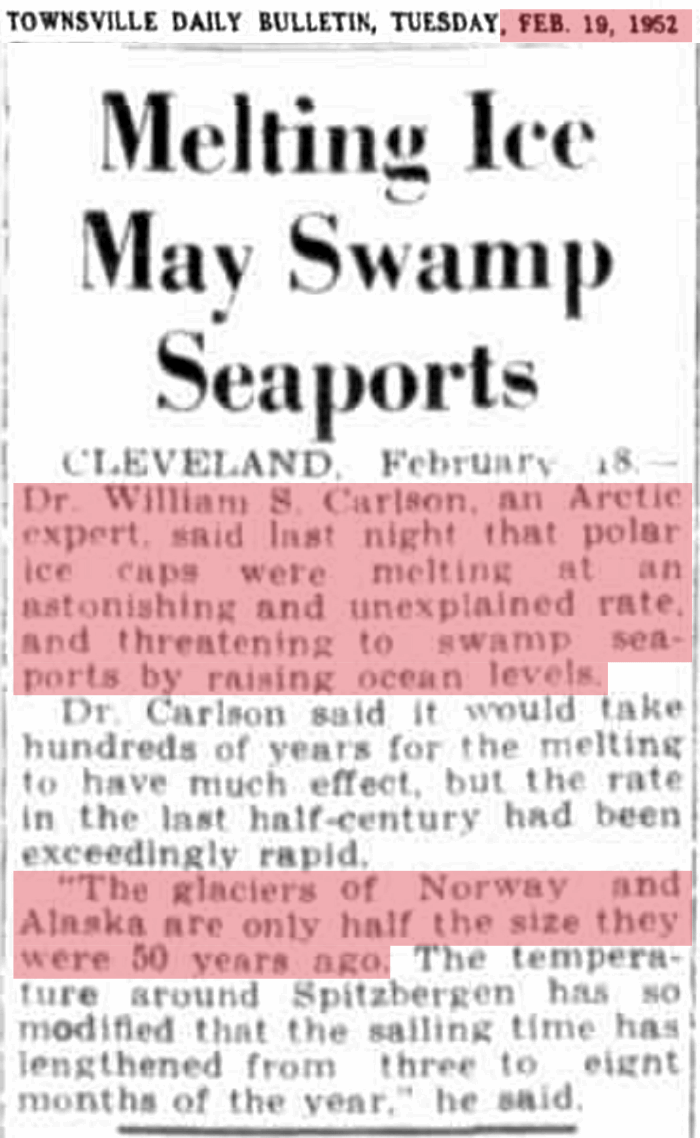You are using an out of date browser. It may not display this or other websites correctly.
You should upgrade or use an alternative browser.
You should upgrade or use an alternative browser.
Can Solar & Wind Fix Everything (e.g., Climate Change) with a battery break-through?
- Thread starter svetz
- Start date
it get very convoluted with people.
IMO the reason some people are not on-board with the whole fossil fuels/climate change
plan can be seen in the plots of movies like Fountainhead/Atlas Shrugged , old ideas, but still out there.
View attachment 213494
She supported rational and ethical egoism as opposed to altruism. In politics, she condemned the initiation of force as immoral and supported laissez-faire capitalism, which she defined as the system based on recognizing individual rights, including private property rights. Although she opposed libertarianism, which she viewed as anarchism.
my interest in progress on these issues are not because of any personal fears now, but I do care for my great, great, grandkids.
so I'll support any effort we can take now to increase their chances in the future.
the only risk I can see, as we continue to pump crap into the air, and by doing that increase the world's temperature
could that mitigate the coming ice age. if with stop treating our atmosphere as a toilet are my great, great, grandkids
going to have to wear a coat all the time
View attachment 213504
She had a unique life. Born before the Russian revolution, then living her young life under the communists she had a unique outlook on things.
So many people view her views through the glass of today, and not the time she lived in. She died in the early 80's and I doubt that many people would disagree that the politics and parties are very different now vs 1970.
Not just banned from social media, their careers are destroyed and if that does not get them to shut up, they will be personally destroyed.
aenyc, it was a good idea to put X Ray machines in shoe stores back in the day so people
could get the right shoe fit, but the long term heath effects made it impractical.

Shoe-fitting fluoroscope - Wikipedia
It looks like they went out in the 40's some sources say before the US entry into WWII.
You keeping on this is like Radium girls painting their teeth and lips, and the marketing of women's makeup with radium for that "glow".
I think that people knew even back then that the stuff was not so great for you, a huge understatement. But just like today and that meme, the science was funded by the people that make the products. The money made them shut up about it. A little like one of our friends here, Bill Gates, Jeff Bozo's, Rockefellers, Musk.....they are all dumping in HUGE amounts of money to keep the ball rolling in the direction they want it to go. Today is no different from yesterday. We however are at ground zero, we don't have the 20/20 eyesight to see that.....well duh Radium will kill you. There will come a time when we see the same thing about electric cars and just how stupid they really are.
svetz
Works in theory! Practice? That's something else
Fossil fuels have a great density! But a math question! Sure! Being forewarned of my disclaimer below let's see...How many batteries do you need to replace 5 gallons of propane?
5 gallons of propane burned in a generator varies depending on load but at best is about 30 kWh. If you burned it in a fuel cell you could get a lot more, but most of that energy you paid for just becomes waste heat.
So, in theory you'd need a 30 kWh battery. But what about in practice? Well, 0 in the daytime if you have solar. I don't typically burn 30 kWh a day unless the air conditioning or heat is on. But let's say I need 10 kWh to tide me for when the sun isn't shining, why I'd need 10 kWh of batteries.
Cost Basis
How do 30 kWh of battery compare to 5 gallons of propane? Let's look at the cost. Will says that LFP is going to be $56/kWh inside of 6 months. so 30 kWh would be 30x56 = 1680. LFP under optimal conditions can go 10,000 cycles (ref), but let's say the standard 3k and let's bump the 30 kWh upto 37.5 kWh to account for a 20% loss at 3k cycles... so that's $2100. Propane is $2.60/gallon here, so 3000 cycles of propane is $39,000 (but with a carbon tax it would obviously more).
So, batteries definitely for the win on the cost. Seeing why fossil fuel companies don't want to go there and have a PR campaign to deny climate change?
Size Basis
A 5 gallon propane tank is pretty small, 18" x 12", or a volume of about 1.5 cubic feet. LFP is about 500 kWh/m3 (ref), so, that's about 2.1 cubic feet for 30 kWh. Yep, propane wins here (but is that 0.7 cuft really worth the extra money?)
Yep, renewables are pretty nice in comparison.I have been to most of the major Hydroelectric Dams in the State and find them to be surprisingly pleasant for a Government operation. No fumes or toxic irritants there.
But when you talk about the ugliness of renewables, I can't help but wonder if you're also fairly comparing it to existing ugliness of pipelines, how black soot coating your windowsills, the black mountains of coal sitting by the power plant waiting to be burned, power plants spewing out gases, etc.
ROFL! The companies building solar farms aren't doing it for CO2... they're doing it to make money. Even without subsidies it's cheaper.I have not been 'led to believe' this, I have observed it. Im not saying solar isn't worth it now for many applications, I am saying that we dont have to waste good land for the sake of reducing CO2. Solar has an important role, but that is not it.
But I agree we shouldn't "waste" good land and as far as I know they're not (mainly because they're getting built where land is cheap because no one can do much with it). But, don't forget about the good land that is wasted by power plants or has been turned into a superfund site after the plant / well was decommissioned. Chernobyl contaminated 20,000 square miles of land in Ukraine. To power the entire U.S. with solar you need about the area of lake Michigan ref. Distributed across American rooftops you'd never even notice it.
Reference please.Governments and corporations are wasting land with it.
I still don't know what you mean by this. Power is power regardless of where it comes from. Combined with battery it can provide power 24x7 to meet all loads regardless if the grid is up or down.Solar does nothing for constant supply when it is needed as we already know.
That's why getting energy storage costs was so key to making the system viable. With energy storage there is no waste.... is largely making power when it is needed least...
Renewables are viable today as proven with the LCOEs, and the prices are only going down.
Last edited:
Svetz is again posting could-be would-be may-be stuff. Stop being a shill Svetz. None of these technologies are feasible/proven/commercially available. And that does not even take into account the economics.
You have never answered the question continuously asked of you - are you willing to give up everything that was enabled by conventional fuels and live in a cave (and eat ze bugs). You have always avoided this question proving that you are a hypocrite just like the billionaire "elite".
You want OTHERs to give up their comforts, but you are expecting none of this to apply to you.
You have never answered the question continuously asked of you - are you willing to give up everything that was enabled by conventional fuels and live in a cave (and eat ze bugs). You have always avoided this question proving that you are a hypocrite just like the billionaire "elite".
You want OTHERs to give up their comforts, but you are expecting none of this to apply to you.
People are waking up
The recent Monmouth University Poll reveals a noticeable shift in the American public’s perception of climate change, highlighting a reduction in both the perceived urgency of the issue and support for governmental action. This decline in concern, especially among younger adults, prompts a critical examination of what might be influencing these trends and the potential implications for climate policy.
Decline in Perceived Urgency Among Younger Adults
 https://www.monmouth.edu/polling-institute/reports/monmouthpoll_us_050624/
https://www.monmouth.edu/polling-institute/reports/monmouthpoll_us_050624/
One of the more striking findings from the Monmouth Poll is the pronounced drop in urgency about climate change among younger adults. Previously seen as the most concerned demographic, their dwindling anxiety could signal a significant shift in future public and political engagement on environmental issues.
The data suggests that while 73% of Americans still acknowledge climate change, the conviction that this constitutes a serious problem warranting immediate action has notably diminished. In 2021, 56% of Americans viewed climate change as a very serious issue, a figure that has now declined to 46%. This decline is mirrored in the support for government action, which has also decreased across the board.
Partisan Differences and Shifting Opinions
The poll outlines a persistent partisan divide in beliefs about climate change, with 92% of Democrats acknowledging its occurrence compared to just 51% of Republicans. This partisan disparity extends to the urgency and required action concerning climate change, with drastically lower levels of concern and support for intervention among Republicans compared to Democrats.
Implications for Policy and Public Discourse
The decline in urgency and support for action against climate change among younger adults is particularly concerning. Historically, this demographic has been pivotal in pushing for environmental reforms. The shift could result from various factors, including climate change fatigue, skepticism over the effectiveness of proposed policies, or broader political and social disillusionment.
This waning enthusiasm could lead to significant challenges in advancing climate-related policies, potentially limiting the scale and scope of actions taken.
Conclusion: A Call for Critical Examination and Renewed Dialogue
The Monmouth Poll’s findings serve as a crucial barometer of public sentiment, suggesting that while belief in climate change remains relatively stable, there is a growing ambivalence about its severity and the effectiveness of governmental action.
I would suggest that a growing distrust of ideologically compromised media, government, and institutions is being propelled by an unending series of pronouncements that are clearly false to anyone with a memory or is capable of looking out a window.
A Dip in Climate Change Concerns Among Young Adults
The recent Monmouth University Poll reveals a noticeable shift in the American public’s perception of climate change, highlighting a reduction in both the perceived urgency of the issue and support for governmental action. This decline in concern, especially among younger adults, prompts a critical examination of what might be influencing these trends and the potential implications for climate policy.
Decline in Perceived Urgency Among Younger Adults
 https://www.monmouth.edu/polling-institute/reports/monmouthpoll_us_050624/
https://www.monmouth.edu/polling-institute/reports/monmouthpoll_us_050624/One of the more striking findings from the Monmouth Poll is the pronounced drop in urgency about climate change among younger adults. Previously seen as the most concerned demographic, their dwindling anxiety could signal a significant shift in future public and political engagement on environmental issues.
reports the Monmouth University Polling Institute.“Most Americans continue to acknowledge the existence of climate change, but the number who see this as a very serious problem has fallen below half. Support for government action to reduce activities that impact the climate has dipped below 6 in 10 for the first time since Monmouth began polling this topic nearly a decade ago,”
https://www.monmouth.edu/polling-institute/reports/monmouthpoll_us_050624/
The data suggests that while 73% of Americans still acknowledge climate change, the conviction that this constitutes a serious problem warranting immediate action has notably diminished. In 2021, 56% of Americans viewed climate change as a very serious issue, a figure that has now declined to 46%. This decline is mirrored in the support for government action, which has also decreased across the board.
Partisan Differences and Shifting Opinions
The poll outlines a persistent partisan divide in beliefs about climate change, with 92% of Democrats acknowledging its occurrence compared to just 51% of Republicans. This partisan disparity extends to the urgency and required action concerning climate change, with drastically lower levels of concern and support for intervention among Republicans compared to Democrats.
the poll notes. This variability, particularly the drop following a temporary rise, could reflect the influence of political leadership and media narratives on public opinion.“Republicans (51%) are the least likely to accept climate change as a reality, which is similar to GOP opinion in 2021 (48%) and 2015 (49%), but down from a momentary jump recorded in 2018 (64%),”
https://www.monmouth.edu/polling-institute/reports/monmouthpoll_us_050624/
Implications for Policy and Public Discourse
The decline in urgency and support for action against climate change among younger adults is particularly concerning. Historically, this demographic has been pivotal in pushing for environmental reforms. The shift could result from various factors, including climate change fatigue, skepticism over the effectiveness of proposed policies, or broader political and social disillusionment.
explains Patrick Murray, director of the Monmouth University Polling Institute.“Support for climate action remains relatively high in absolute terms, but it has softened due to a drop in the sense of urgency on this issue, particularly among younger adults,”
https://www.monmouth.edu/polling-institute/reports/monmouthpoll_us_050624/
This waning enthusiasm could lead to significant challenges in advancing climate-related policies, potentially limiting the scale and scope of actions taken.
Conclusion: A Call for Critical Examination and Renewed Dialogue
The Monmouth Poll’s findings serve as a crucial barometer of public sentiment, suggesting that while belief in climate change remains relatively stable, there is a growing ambivalence about its severity and the effectiveness of governmental action.
I would suggest that a growing distrust of ideologically compromised media, government, and institutions is being propelled by an unending series of pronouncements that are clearly false to anyone with a memory or is capable of looking out a window.
We disagree, I do want governments to invest in saving money just like private citizens and corporations, I don't even object to government mandating new technologies on government buildings, like your Jimmy Carter did. It's a shame that this wasn't continued as now solar and battery technology is behind China. However it was not all that obvious to the average voter that he was right at the time and with many of those things, it is a hit and miss.I don't want a dime of my money spent on a rooftop solar install on a government building that doesn't even function when the grid is down, but merely offsets it own use. Something has to provide the baseload for the grid and a source that is intermittent is not capable of this. I would suggest that encouraging induvidual homes and businesses to go off grid would be superior in the long run.
If power goes off in an office building, that does affect the productivity since a lot of office work is computer based (regardless if it is government or private offices) I suggest you guys find a way to island the properties rather than forbidding to use a generator powered by sunlight for governments.
Predicting the future is a lot harder then people seem to think, I know I can't, but the trend of solar getting cheaper than fossil has been clear for well over a decade, what I didn't expect is the cost of batteries dropping this fast. With the shortage of power due to electric cars, electric heating, combined with continuing economic growth and a lack of investment in the grid, I expect the grid to become unstable. Even more reason to install solar while politicians bicker about the grid, something I would gladly leave to the experts rather than politicians.
svetz
Works in theory! Practice? That's something else
No, I don't believe the government is implementing climate change under any guise. Yes, I believe that history shows starvation, disease, and lack of resources will cause migration and civil unrest.Do you think that war, terror, disease, famine, and immigration will be reduced because of a global government implemented under the guise of anthropogenic CO2 climate destruction?
Your ancestors almost died then too (ref).There was once 2 miles of ice above where I am right now.
The planet just is, it doesn't adapt. The biologicals on it have to adapt to changes, or die off. We typically have mass die-offs each major temperature transition. refThe Earth is able to adapt and it will.
Agreed. But extreme. We can solve the problems without those measures. A carbon tax to remove GHGs on fuels would do it.we are designed to adapt and we will, either freely or with the iron fist of tyranny.
Turquoise and Natural hydrogen are interesting, but green hydrogen doesn't have the round-trip-efficiency of other systems... |
I understand you believe that. But, you also have shown any reason why you believe that which I haven't already rebutted. If you assume all scientists are in cahoots and all data is false, then neither of our viewpoints can be valid.Most importantly the realization that the Co2= catastrophe narrative is false
But you have! When you read those crazy headlines you talked about, even watched any news, when you heard a politician say it was a hoax because they were lobbied by the industry, when you doubted the science was real, when a friend made a joke about it... there's no way to escape the propaganda.does not need any support from the oil companies. I have never sat down and read oil company propaganda
Other than GHGs, what is the motivation? Fossil fuel companies won't go away... we still need plastics and tons of other products. But the enormous power they wield today, yeah that will go away and they don't like it.I just understand that there is a motive behind the elimination of fossil fuels, and that motive is not positive for humans or our civilization.
When did we start talking about jailing people for being deniers? Are we going to round up the flat-earthers too? Sounding just a tad desperate/hysterical in your argument.Yes isn't it telling how it is always the pro climate change side that talks about jailing people for "denial". Denial of anything true or fake is a right. Tyranny does not approve of disagreement with it's assertions, does it?
Denying something with evidence is good. But denying something without evidence or because you have fears that bad things might happen without acknowledging the consequences that it might happen is just hiding from reality. Rather than argue with emotions or rhetoric, facts will get you farther.
There's ton's of denial as a part of the discussion. What would make you think otherwise?The scientific method is not possible when "denial" is disallowed as part of the discussion.
They get scoffed at for the same reason flat-earthers do, the science doesn't support their arguments. That's when they have arguments, a lot of it is emotional BS, attempts to discredit scientists, or bamboozle people with half-truths and cherry picked data.
A government conspiracy? Mainly it's Occom's razor. For all scientists and all governments to be in on it (even North Korea) is so unlikely compared to other possibilities. Plus, our government is so dysfunctional/divided it couldn't pull off a hoax of this magnitude. I'm sure you'll point to the one or two scientists that say it's a hoax, but they've been debunked... that is shown to be taking money from oil companies and usually not ever climate scientists.ALSO, why are you a Conspiracy "denier?"
Now the oil companies, knowing their world dominance is threatened and bamboozling you? Yeah, that's believable.
Why are you?Why are you a truth denier?
I try to stick to facts. So far you've yet to show any evidence of any conspiracy and I've presented facts that it is not a hoax:... there are many a word put to paper that demonstrate the conspiracy that is playing out at this moment. Will you acknowledge that fact?
- How we know Climate Change is not a hoax or wrong
- How we know Climate Change is Man-Made
- How The Greenhouse Gas Effect Works (with atmospheric layers)
- How Climate Change Became Politicized
- 200 climate myths With Explanations as to why they're wrong
Svetz is again posting could-be would-be may-be stuff. Stop being a shill Svetz. None of these technologies are feasible/proven/commercially available. And that does not even take into account the economics.
You have never answered the question continuously asked of you - are you willing to give up everything that was enabled by conventional fuels and live in a cave (and eat ze bugs). You have always avoided this question proving that you are a hypocrite just like the billionaire "elite".
You want OTHERs to give up their comforts, but you are expecting none of this to apply to you.
You have never answered the question continuously asked of you - are you willing to give up everything that was enabled by conventional fuels and live in a cave (and eat ze bugs). You have always avoided this question proving that you are a hypocrite just like the billionaire "elite".
You want OTHERs to give up their comforts, but you are expecting none of this to apply to you.
The Cost of EPA’s Senseless CO2 Capture
U.S. Environmental Protection Agency (U.S. EPA) passed a new rule that would require coal power plants that plan to continue operating after January 1, 2039, and new natural gas power plants that plan to begin operation on or after 2035 to capture at least 90% of their CO2 emissions.How much would this cost? And is it worth it?
Well, as they say, we ran the numbers. Thankfully, researchers from the National Energy Technology Laboratory (NETL) have provided the cost and performance estimates for retrofitting an existing coal power plant with Shell’s CANSOLV CO2 capture system.
For the performance and cost estimates, I will use the NETL estimates for 90% carbon capture. (Here, I am using the term “carbon capture,” rather than “CO2 capture,” because NETL uses the mass of carbon, rather than the mass of CO2, in its calculations.)
Before the retrofit, NETL’s baseline coal power plant had a net output of 650 megawatts (MW). But after retrofitting it with the CO2 capture system, the power output was reduced by 24% to 495 MW. In terms of money, the retrofit cost is about $988 million, or about $2 million/MW of net power output.
What do these numbers mean for the United States?
Based on the U.S. Energy Information Administration, as of March 2024, the United States has 148 coal power plants in operation in the electric utility sector, with an average capacity of about 139,000 MW. Of these, 36 plants plan to retire completely on or before December 2040 and 8 plants plan to retire at least one steam turbine on or before December 2034, but not entirely. Taking the difference of 148 and 36, there are 112 coal power plants in the United States without any planned retirement year, having a total average capacity of about 96,000 MW.
Using the NETL estimates, if we were to retrofit these 112 coal power plants to enable 90% carbon capture, the 24% net power output reduction would bring electricity production down to about 73,000 MW. Applying the retrofit cost of about $2 million/MW of net power output to the plants’ reduced power output, we arrive at a projected cost of about $146 billion.
Keep in mind, these estimates are only for coal power plants. We haven’t even gotten to retrofitting natural gas power plans, nor have we addressed the cost of replacing the tens of thousands of megawatts lost in the 24% production decrease of converted plants.
And what about constructing brand new natural gas power plants? How much would that cost?
Again, we turn to NETL for the estimates.
Using NETL’s baseline natural gas combined cycle (NGCC) power plant, the numbers provided by NETL include a cost of about $1.05 billion to construct a new 992 MW plant without CO2 capture and a cost of about $1.87 billion to construct a new 883 MW plant with 90% carbon capture. In other words, the 78% plant cost increase comes with an 11% net power output reduction.
So, we clearly are talking about a lot of money to remove most of the carbon dioxide from our American power plants fueled by fossil fuels. But is spending the extra money to capture CO2 worth it?
Based on the analysis performed using the Model for the Assessment of Greenhouse Gas Induced Climate Change (MAGICC), theoretically, if the United States ceased all CO2 emissions in 2010, the amount of warming averted would be only about 0.07 °F by 2050 and 0.19 °F by 2100. Such a temperature difference is negligible and can hardly be felt or measured.
Furthermore, in the United States in 2022, the CO2 emissions from coal and natural gas amounted to about 0.93 and 1.74 billion metric tons, respectively, for a total of 2.67 billion metric tons. However, the total CO2 emissions from fossil fuels and industrial processes amounted to 5.06 billion metric tons. This means that the CO2 emissions from coal and natural gas contributed to only about 53% of the total emissions. Therefore, the temperature rise averted by stopping all CO2 emissions from burning coal and natural gas becomes even smaller compared to the above estimates from MAGICC.
Finally, besides being expensive and futile, keep in mind: Plants need CO2, along with sunlight, water, and nutrients from the soil to produce oxygen and food, both of which are essential for all living beings.
In fact, higher concentrations of CO2 have enabled an increase in the growth, food production, water-use efficiency and drought resistance of plants, as well as the greening of Earth, as confirmed by NASA. According to NASA, 70% of this greening is attributed to “fertilization” by CO2.
Given the critical role CO2 plays in driving plant and crop growth, is spending over a hundred billion dollars to remove it from the air sensible? We think not.
"A society whose citizens refuse to see and investigate the facts, who refuse to believe that their government and their media will routinely lie to them and fabricate a reality contrary to verifiable facts, is a society that chooses and deserves the Police State Dictatorship it's going to get."

 corbettreport.substack.com
corbettreport.substack.com
 economicprism.com
economicprism.com

 wattsupwiththat.com
wattsupwiththat.com
 www.corbettreport.com
www.corbettreport.com

 wattsupwiththat.com
wattsupwiththat.com

 www.minds.com
www.minds.com

 wattsupwiththat.com
wattsupwiththat.com


 www.theepochtimes.com
www.theepochtimes.com

 alt-market.us
alt-market.us
 dailysceptic.org
dailysceptic.org


 wattsupwiththat.com
wattsupwiththat.com

 iaindavis.com
iaindavis.com

 dailysceptic.org
dailysceptic.org
 www.zerohedge.com
www.zerohedge.com

 dailysceptic.org
dailysceptic.org

 thefederalist.com
thefederalist.com
 dailysceptic.org
dailysceptic.org
 mises.org
mises.org

 pragmaticenvironmentalistofnewyork.blog
pragmaticenvironmentalistofnewyork.blog

 www.spectator.co.uk
www.spectator.co.uk

 dailysceptic.org
dailysceptic.org

"Green" Energy Is a Scam. It Isn't MEANT to Work.
by James Corbett corbettreport.com September 24, 2022 Good news, everybody! A new report from the eggheads at Oxford University assures us that switching to renewables will actually save us trillions of dollars! You heard that right. It won't cost us trillions of dollars to build out a...
Are You Willing to Starve for the Greater Good? | Economic Prism
 economicprism.com
economicprism.com

Failed Prediction Timeline
FilterTopic1.5 Degree ThresholdAcid RainArctic Sea IceBiodiversityClimate ChaosClimate ModelsDroughtsEnvironmental Disaster/PollutionEnvironmental RefugeesFamineHeat WavesHurricanesLandfillsMelting…
 wattsupwiththat.com
wattsupwiththat.com
Episode 381 – Who Will Fact Check the Fact Checkers? | The Corbett Report
 www.corbettreport.com
www.corbettreport.com

Corruption Of Science By Money And Power
One might ask if the Rockefeller Foundation, once a friend of science, society and industry, is now a powerful enemy.
 wattsupwiththat.com
wattsupwiththat.com

Absolute Zero: The Global Agenda Revealed | Minds
by James Corbettcorbettreport.comAugust 21, 2021As anyone who's been paying attention will know, Imperial College London played a key role i...
 www.minds.com
www.minds.com

‘Hottest Days’ Manipulation?
But there seems to be a problem with the Climate Reanalyzer.
 wattsupwiththat.com
wattsupwiththat.com

Cooling The Past Is The Foundation Of This Scam
The Arctic was warmer in the 1930’s and 1940’s than it is now, and unlike now – glaciers were melting very quickly. February 18. 1952 Dr. William S. Carlson, an Arctic expert, said last night that …
realclimatescience.com

The Fact-Check Racket Finally Unravels

Globalists Suggest 'Finance Shock' And Climate Controls To Launch Their Great Reset - Alt-Market.us
This article was written by Brandon Smith and originally published at Birch Gold Group At the end of June government...
 alt-market.us
alt-market.us
Nobel Physics Laureate 2022 Slams 'Climate Emergency' Narrative as "Dangerous Corruption of Science" – The Daily Sceptic
The co-winner of the 2022 Nobel Physics prize has launched an excoriating attack on the 'climate emergency' narrative, calling it a "dangerous corruption of science that threatens the well-being of billions of people".

Videos: Climate Czar John Kerry Exposed As Bald Faced Liar Over Use Of Private Jet
Claims he doesn't fly on a private jet, then admits he did while acting as State Department climate czar
summit.news

NOAA/NCEI Temperature Anomaly Adjustments Since 2010, Pray They Don't Alter It Any Further
Guest Essay By Walter Dnes There is much interest in the latest temperature anomaly adjustments by NOAA/NCEI (formerly known as NOAA/NCDC). This author has been downloading NOAA monthly temperature…
 wattsupwiththat.com
wattsupwiththat.com

Not Fact Checkers
Fact checkers are the sole arbiters of the truth, they see and know all. At least that's what we are told to believe. But they're not fact checkers at all.

Climate Models Come With 'Dangerous' CO2 Warming Baked In, Code Review Finds – The Daily Sceptic
An expert review of NASA's climate model code has found that it comes with 'dangerous' warming from CO2 baked in despite consistently over-shooting the actual measured temperatures.
Watch: Virtue-Signalling Spanish Environmental Minister Bikes To Climate Conference With Escort Of Gas Cars | ZeroHedge
ZeroHedge - On a long enough timeline, the survival rate for everyone drops to zero

Central Bankers Predicted Net Zero Would Lower Inflation – and Got it Spectacularly Wrong – The Daily Sceptic
Central bankers around the world claimed the Net Zero transition away from fossil fuels would lower inflation, but new analysis from top financial services firm Nomura has found it is in fact driving it.

U.N. To Seize Global ‘Emergency’ Powers With Biden’s Support
The proposal might be the biggest attempted power grab in the history of the U.N. If approved, the U.S. as we know it could cease to exist.
NASA Climate Model Fails at Basic Physics, Report Finds – The Daily Sceptic
A new paper examines the computer code inside NASA's Model E climate simulation and finds that it doesn't even reproduce basic physics correctly. So how will it get 50-year climate predictions right?
Wind and Solar Are NOT Cheaper than Coal and Oil | Mises Institute
President Biden makes the false claim that wind- and solar-generated electricity are cheaper than power generated from coal and oil.

New York State Advanced Clean Cars
I believe that the majority of New Yorkers are unaware of the ramifications of regulations implementing control programs for the Climate Leadership & Community Protection Act (Climate Act) emis…

Science fiction: the crisis in research
The president of Stanford University, the neuroscientist Marc Tessier-Lavigne, has announced his resignation following an investigation into allegations of fraud and fabrication in three of his lab’s scientific papers, including one cited as the most important result on Alzheimer’s disease in 20...

Last Year’s Nobel Physics Laureate Signs World Climate Declaration Stating ‘There is No Climate Emergency’ – The Daily Sceptic
Last year, the Daily Sceptic published a viral article about all the scientists who'd signed a declaration disputing we're in a climate emergency. Last year's winner of the Nobel Prize for physics has just added his name.
Demand for Electric Cars has Dried Up
Demand for electric cars has dried up and it’s time for a rethink, says billionaire founder and Chairman of chemicals giant INEOS, Sir Jim Ratcliffe. Writing in the Telegraph, he says the “notion of a quick transition away from petrol was always barmy”. Here’s an excerpt.Ratcliffe outlines his preferred transitional design of an electric vehicle with range extender (REX): “You can charge it in the normal manner. However, tucked away under the bonnet is a small engine and a generator. The engine powers the generator, when requested, which in turn charges the battery. The engine is not connected to the pedal, so is simple, efficient and reliable.”The electric car is not popular today. The early adopters have all bought theirs so now the car giants are having to persuade ‘normal punters’ of the merits of going electric. And they are having none of it.
There is a rather fundamental drawback with the electric car. It simply doesn’t do what you want a car to do. It doesn’t get you from A to B reliably if you are on a long journey. And you have no idea whether you will be able to fill it up. Put it together and it’s referred to as ‘range anxiety’. And it’s very real.
Electric is fine and dandy for the short local journey, but should you decide to head off for the hills, forget it. And hence demand has dried up. Tesla is making 14,000 workers redundant. In March, German sales of electric cars collapsed by 30%. You can’t give a second-hand electric car away in the U.K.
Politicians have been dreaming of vote-winning green agendas and utopian engineering and energy switches. Dreams of course, don’t need to be real. They don’t need to accommodate the needs of the consumer, the practicalities of installing colossal new infrastructure and the small matter of where all this electricity is coming from. Coal?
Flipping transportation from fossil fuels directly to electric is not like flipping a light switch. The very notion is barmy, which is why the USA predicts electric car take up by 2050 in the USA will only be 20%. In Europe, our idealists are heading towards 100%.
“Why would you ever buy a fully electric car when you have this option of an electric vehicle with a range extender and complete absence of range anxiety?” he asks.

Worth reading in full.
In the same newspaper, Matthew Lynn says “the electric car carnage has only just begun”: “Ford has just confirmed what has long been feared: that the latest quotas are punitive for U.K. consumers and a gift to China.”
MTM98290
Solar Enthusiast
- Joined
- Dec 24, 2022
- Messages
- 312
I love my truck based SUV. Thank you government regulation.We disagree, I do want governments to invest in saving money just like private citizens and corporations, I don't even object to government mandating new technologies on government buildings, like your Jimmy Carter did. It's a shame that this wasn't continued as now solar and battery technology is behind China. However it was not all that obvious to the average voter that he was right at the time and with many of those things, it is a hit and miss.
We could save more energy by reducing the size of government. Think how many MWh could be saved if there weren't as many government workers to provide power for. Lowering the demand on the system is always a simpler solution to building a bigger system.If power goes off in an office building, that does affect the productivity since a lot of office work is computer based (regardless if it is government or private offices) I suggest you guys find a way to island the properties rather than forbidding to use a generator powered by sunlight for governments.
I could be wrong but I don't think most commercial PV installs allow for backup during grid outage, so unless an office building is off grid I'm not sure that helps anybody.
Yes the grid is a great reason to install an off grid system. It not a great time to invest in using the grid as your battery.Predicting the future is a lot harder then people seem to think, I know I can't, but the trend of solar getting cheaper than fossil has been clear for well over a decade, what I didn't expect is the cost of batteries dropping this fast. With the shortage of power due to electric cars, electric heating, combined with continuing economic growth and a lack of investment in the grid, I expect the grid to become unstable. Even more reason to install solar while politicians bicker about the grid, something I would gladly leave to the experts rather than politicians.
MTM98290
Solar Enthusiast
- Joined
- Dec 24, 2022
- Messages
- 312
Choosing the most inefficient possible use of propane doesn't prove much here. How about comparing propane for heating? The thing that gets people killed is freezing for due to lack of energy. Heat is the number one energy concern for any building in my opinion.Fossil fuels have a great density! But a math question! Sure! Being forewarned of my disclaimer below let's see...
5 gallons of propane burned in a generator varies depending on load but at best is about 30 kWh. If you burned it in a fuel cell you could get a lot more, but most of that energy you paid for just becomes waste heat.
So, in theory you'd need a 30 kWh battery. But what about in practice? Well, 0 in the daytime if you have solar. I don't typically burn 30 kWh a day unless the air conditioning or heat is on. But let's say I need 10 kWh to tide me for when the sun isn't shining, why I'd need 10 kWh of batteries.
Cost Basis
How do 30 kWh of battery compare to 5 gallons of propane? Let's look at the cost. Will says that LFP is going to be $56/kWh inside of 6 months. so 30 kWh would be 30x56 = 1680. LFP under optimal conditions can go 10,000 cycles (ref), but let's say the standard 3k and let's bump the 30 kWh upto 37.5 kWh to account for a 20% loss at 3k cycles... so that's $2100. Propane is $2.60/gallon here, so 3000 cycles of propane is $39,000 (but with a carbon tax it would obviously more).
So, batteries definitely for the win on the cost. Seeing why fossil fuel companies don't want to go there and have a PR campaign to deny climate change?
Size Basis
A 5 gallon propane tank is pretty small, 18" x 12", or a volume of about 1.5 cubic feet. LFP is about 500 kWh/m3 (ref), so, that's about 2.1 cubic feet for 30 kWh. Yep, propane wins here (but is that 0.7 cuft really worth the extra money?)
So how then does the propane stack up? An inefficient heater at 80% will make much more use of the propane than a generator could.
An 80% efficient propane heater can extract 96kwh from 4.5 gallons. So that takes 18 5kw batteries to provide a similar amount of energy, if you get a great deal on batteries and pay $1000 each, you are into it $18,000 just to store that amount. If for some reason you find that you have used up all of your propanes 96kwh, you can simply hook up another tank. You might even have one ready to go, because we can afford them. $50 gets me 96kwh of energy and $25 refills it when empty. Because I can afford it, I can have multiple. That can not be said of the 18 batteries that the propane replaces in this scenario. If my batteries run all 96kwh out of them, how do I retcify that immediately? I don't, because it isn't possible.
Electricity from batteries can be great for many things, but if you are relying on it as a means to create heat you need to over build sufficiency, and that is not in the budget for many people in the real world.
Pipelines are ugly, mostly because of the imminent domain theft that they representYep, renewables are pretty nice in comparison.
But when you talk about the ugliness of renewables, I can't help but wonder if you're also fairly comparing it to existing ugliness of pipelines, how black soot coating your windowsills, the black mountains of coal sitting by the power plant waiting to be burned, power plants spewing out gases, etc.
I can forgive the ugliness of functional systems that are in place this moment. I do not want to see open spaces covered in unnecessary solar fields.
What black soot? I don't live in Dickensian London or Shanghai.
Only time I see coal here is when it goes by on trains, bound for export to lands that burn it dirty because they don't give two shits about actual pollution, let alone CO2.
Many coal plants have been converted to natural gas. Even then, coal plants have been improved so much that they are hardly a threat. The mining of coal is still problematic, but nothing like mining the rare earth elements for batteries that is largely accomplished by children.
The push for "net zero" and 'going green' is driving incentivization of solar feilds. It may be profitable for some situations, such as powering the pointless lights of Las Vegas during the day.ROFL! The companies building solar farms aren't doing it for CO2... they're doing it to make money. Even without subsidies it's cheaper.
That sounds nice, I would happy if we could get to that point, but the US rooftop PV is largely grid tied, with the grid as a backup which is not helpful for overall system stability. It takes storage, storage is expensive and not without downsides.But I agree we shouldn't "waste" good land and as far as I know they're not (mainly because they're getting built where land is cheap because no one can do much with it). But, don't forget about the good land that is wasted by power plants or has been turned into a superfund site after the plant / well was decommissioned. Chernobyl contaminated 20,000 square miles of land in Ukraine. To power the entire U.S. with solar you need about the area of lake Michigan ref. Distributed across American rooftops you'd never even notice it.
Have you not seen the pictures? Solar fields exist in many places.Reference please.
I mean that batteries are not able to replace all the positive attributes of hydrocarbon fuels. Without the batteries solar becomes close to useless as a grid replacement, unless you are at the North Pole in summer.I still don't know what you mean by this. Power is power regardless of where it comes from. Combined with battery it can provide power 24x7 to meet all loads regardless if the grid is up or down.
Yes energy storage is key. It is not at the same level as established forms of energy.That's why getting energy storage costs was so key to making the system viable. With energy storage there is no waste.
Renewables are viable today as proven with the LCOEs, and the prices are only going down.
18,000 cycles on the battery? Whoa!
Imagine I want to heat a space overnight for 12 hours at 1.8kw or 6824btu per hour which is corrected to 5459btu per hour at 80% efficiency.
To accomplish this we need either 65,508 btus of usable energy per 12 hours or 21.6kwh
A) 5x 5kw batteries at $1000 each (Which is being very generous) is $5000 this would allow for just the bare minimum energy requirement for ONE night. Safety factor of 0.18.
B) A little more than one gallon of propane at 80% efficiency. Assuming you spend the big bucks and buy a refurbished tank that is full for $50, you can accomplish this task for FOUR nights.Then you can refill it for $15-$25 and repeat. Safety factor of four.
Eventually the solar will pay for itself to some degree, but the batteries wear out eventually too.
The most important thing here is that if the heating load were to increase beyond the battery capacity then you will freeze, in the propane scenario you will just burn more propane and won't freeze.
I am of the opinion that electric heat is a great way to use un-utilized PV production or as a supplement. Electric heat being made by batteries as the normal state of operation of a home heating system is a waste of resources.
Last edited:
Bob B
Emperor Of Solar
- Joined
- Sep 21, 2019
- Messages
- 8,854
Choosing the most inefficient possible use of propane doesn't prove much here. How about comparing propane for heating? The thing that gets people killed is freezing for due to lack of energy. Heat is the number one energy concern for any building in my opinion.
He probably doesn't understand that based on where he lives .... Probably more concerned about sea level rising.
Checkthisout
Solar Wizard
- Joined
- Nov 14, 2021
- Messages
- 4,892
We disagree, I do want governments to invest in saving money just like private citizens and corporations, I don't even object to government mandating new technologies on government buildings, like your Jimmy Carter did. It's a shame that this wasn't continued as now solar and battery technology is behind China. However it was not all that obvious to the average voter that he was right at the time and with many of those things, it is a hit and miss.
If power goes off in an office building, that does affect the productivity since a lot of office work is computer based (regardless if it is government or private offices) I suggest you guys find a way to island the properties rather than forbidding to use a generator powered by sunlight for governments.
Predicting the future is a lot harder then people seem to think, I know I can't, but the trend of solar getting cheaper than fossil has been clear for well over a decade, what I didn't expect is the cost of batteries dropping this fast. With the shortage of power due to electric cars, electric heating, combined with continuing economic growth and a lack of investment in the grid, I expect the grid to become unstable. Even more reason to install solar while politicians bicker about the grid, something I would gladly leave to the experts rather than politicians.
Shutup dingdong
Checkthisout
Solar Wizard
- Joined
- Nov 14, 2021
- Messages
- 4,892
He probably doesn't understand that based on where he lives .... Probably more concerned about sea level rising.
And not the ground sinking.
svetz
Works in theory! Practice? That's something else
So, not really seeing any facts as to why climate change is false or more importantly news on climate change which is what the thread is about.
Nonsense, at 80% efficiency in heat extraction that would be 76.8 kWh. But, you could use a heat pump with a COP of 5, so 76.8 kWh of heat would take 15.36 kWh of energy. Or, perhaps that was where you were going?An 80% efficient propane heater can extract 96kwh from 4.5 gallons. So that takes 18 5kw batteries to provide a similar amount of energy
But... don't forget, 4.5 gallons over 3000 cycles at $2.60/cycle is $35,000. From Will's numbers, the 15.36 kWh battery is only $860. Plus, at it's end of life it has value in it's recycle. Whereas the CO2 from propane has a cost to be removed from the air. ; -)
Seems good to me.
Not in a crisis. I'll get sunshine after a hurricane, but power to pump propane and telephone lines for credit card readers aren't there. That's the way it worked in the last hurricane anyway.If for some reason you find that you have used up all of your propanes 96kwh, you can simply hook up another tank.
We do that now with coal/oil/gas/nuclear. It's not like if we turn off all the lights those things stop consuming fuel. Peaker plants sit mostly offline until there is a demand and they fire up (at enormous cost which is why utilities are deploying batteries).Electricity from batteries can be great for many things, but if you are relying on it as a means to create heat you need to over build sufficiency, and that is not in the budget for many people in the real world.
With renewables and the grid and batteries I'd even argue we can much more precisely right-size. Sun not shining over Miami? Borrow some from Tampa. Not saying it's not a complex problem, it already is. Managing is the FERCs responsibility.
When I lived near LA every morning the window sill was gritty with black soot. Couldn't wait to get out of there. ; -)What black soot? I don't live in Dickensian London or Shanghai.
That might have been true with some early trials. But the ones built nowadays are paid for by investors expecting return on their investments.The push for "net zero" and 'going green' is driving incentivization of solar feilds.
Storage prices have fallen dramatically to the point where it's cost effective...again, I'll refer you back to the LCOEs.It takes storage, storage is expensive and not without downsides.
How so? I agree they have negatives, but as a believer in GHGs causing climate change seems the negatives of burning fossil fuels is worse.I mean that batteries are not able to replace all the positive attributes of hydrocarbon fuels.
Agreed. But you keep throwing energy storage out rather than seeing it as a part of the solution.Without the batteries solar becomes close to useless as a grid replacement...
Sure it is!Yes energy storage is key. It is not at the same level as established forms of energy.
Ah! That's where our disconnect is. That $1000 is what you can get off Amazon today. You can't take the premium numbers you pay as if that's what utilities pay. They deal in volumes and get substantial discounts. As batteries become more mainstream those lower costs are passed to consumers (similar to how EV batteries are almost at that cost, e.g., a model Y has a 75 kWh battery and the car costs $43k).To accomplish this we need either 65,508 btus of usable energy per 12 hours or 21.6kwh 5x 5kw batteries at $1000 each (Which is being very generous) is $5000 this would allow for just the bare minimum energy requirement for ONE night. Safety factor of 0.18.
So lets take your numbers and let's use natural gas which which is cheaper than buying propane. $5000 in batteries @ 3000 cycles, vs. $1.452 to $9.52 per therm a consumer pays for natural gas (ref). for 3000 nights is $2,831 to $18,000. The prices are highly susceptible to world events (e.g., war or cold weather drives it up). So batteries still sound pretty good to great. Throw in the 30% tax incentive and that $5k drops to $3600.
If you use Will's numbers for batteries (which are still dropping) then it's closer at $1209 ($850 with tax incentives) and a hands-down winner. I know, as a consumer you can't access those prices today. But the point is utilities can and do, and before long you will be able to as well.
Safety is an interesting question. We've all heard about lithium fires, natural gas fires, and CO poisoning, so hard to say which is best. If you believe in climate change the best solution and lowest cost seems pretty obviously.
I'll have you know I did turn the heat on this winter! For about 5 minutes just to cycle it. Don't worry... next month you'll be laughing at me as I'll become imprisoned due to NWS heat warnings. Who knows, maybe this year I'll find a real cool coat I can go fishing in ; -)He probably doesn't understand that based on where he lives .... Probably more concerned about sea level rising.
I don't really worry about any of it, just to old and won't probably won't see how any of it turns out. At 3mm sea rise per year (yeah yeah I know the rate is increasing) it's a little hard to get worked up about it.
Similar threads
- Replies
- 169
- Views
- 4K
- Replies
- 10
- Views
- 469
- Replies
- 2
- Views
- 158
- Replies
- 5
- Views
- 502


